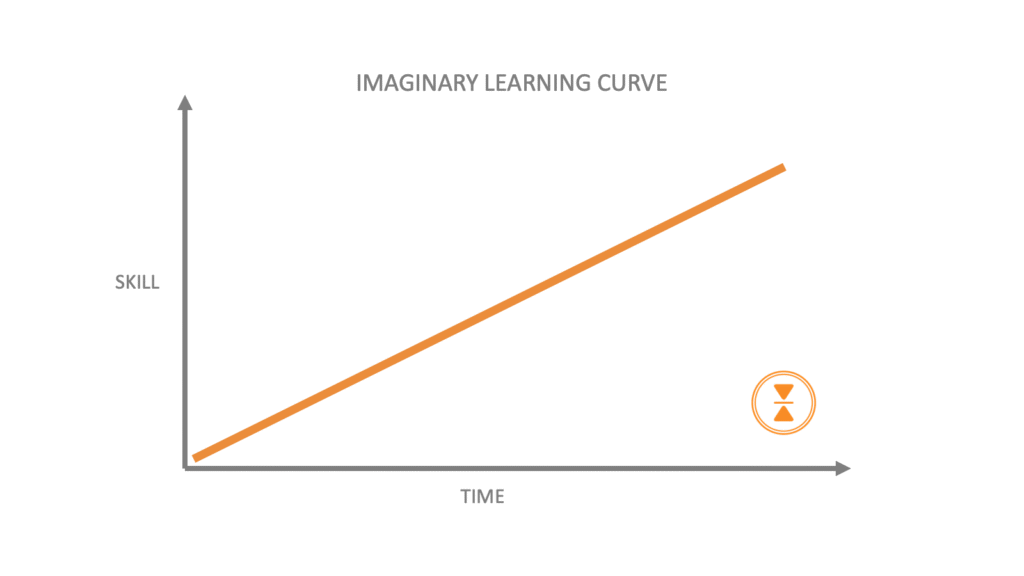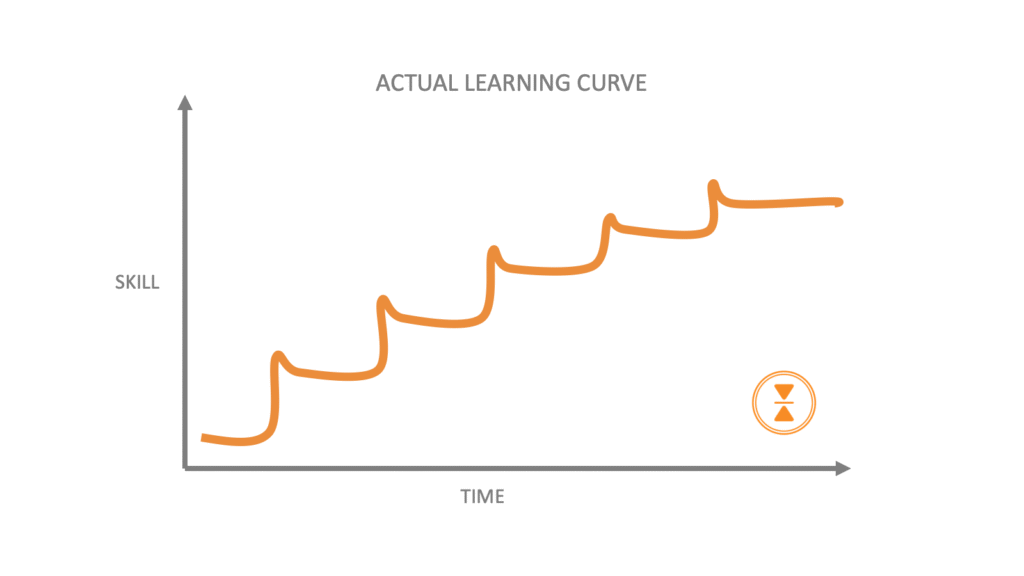Making progress: What should I expect?

We sometimes think of making progress as a slow and steady climb. If we’re working hard consistently, then surely we should be reaping rewards on a similarly consistent basis.

I’ve found that’s not usually how progress works.
A few weeks ago, one of my most regular clients was in for her weekly lesson. We’d been plugging away at this one particular song for weeks, making subtle improvements each time, but to her frustration, she still couldn’t sing it quite how she wished to.
But in this lesson, after weeks of practicing, she had a breakthrough. Something “clicked.” The muscle memory had finally developed, a newfound strength was discovered, and she sang the crap out of this song.
It was amazing! It was magical!
Why does progress take time?
Why does it sometimes take weeks and weeks or months and months of doing the same good things to reap the desired result?
More often than not, progress is achieved in minor breakthroughs after longer periods of plateaus.
This is why it’s so crucial not to give up in the doldrums when practicing seems to yield no visible progress. A swimmer may work for a year to decrease their time in the 100-meter freestyle by only one second. Why would we, as vocalists, expect to achieve vocal progress without putting in the necessary time?

If you’re studying with a good teacher, you may see incredible results in your very first lesson with them. It may feel like more progress or insight than you have ever had before.
However, the following lessons may not feel like the same exhilarating high you had in that first lesson. In fact, it may feel a lot more like . . . work.
Some singers are surprised to hear that singing takes work! It actually is work! Training muscle fibers, brain synapses and channeling emotional energy to create a beautiful and consistent sound is just as much work as training for the 100-meter freestyle.
Once a singer agrees to this process—the process of work, time, effort, and dedication—studying voice becomes much more enjoyable.
This is when we realize that good singing is a journey of mastery. There is no finish line.
If this topic interests you, I highly recommend reading George Leonard’s book Mastery, which completely changed the way I think about learning and progress in every area of my life.